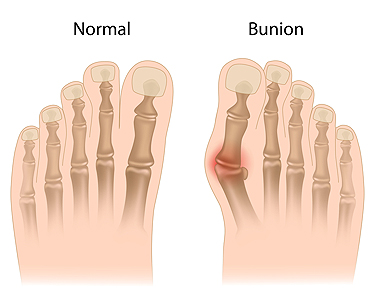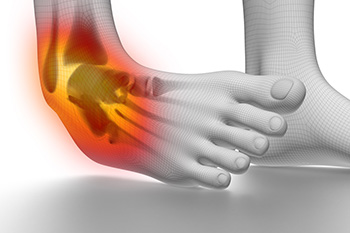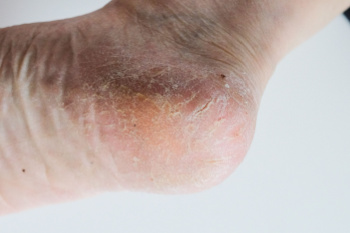Connect With Us
Blog

Bunions can cause pain, stiffness, and swelling near the big toe joint. While bunions do not go away on their own, gentle exercises may help reduce discomfort, improve flexibility, and slow their progression. One helpful move is the toe stretch where you simply pull the big toe gently into alignment and hold for several seconds. Another is the towel scrunch. This involves placing a towel flat on the floor and using your toes to scrunch it toward you, which can strengthen the foot muscles. Try toe spreading by placing small spacers or your fingers between your toes and holding for a short time. Additionally, rolling a ball under your foot can also ease tension. These exercises should be done daily and combined with supportive shoes and foot care. If you have bunion pain, it is suggested that you see a podiatrist for appropriate treatment.
If you are suffering from bunion pain, contact Mark Isenberg, DPM of Center for Podiatric Excellence. Our doctor can provide the care you need to keep you pain-free and on your feet.
What Is a Bunion?
Bunions are painful bony bumps that usually develop on the inside of the foot at the joint of the big toe. As the deformity increases over time, it may become painful to walk and wear shoes. Women are more likely to exacerbate existing bunions since they often wear tight, narrow shoes that shift their toes together. Bunion pain can be relieved by wearing wider shoes with enough room for the toes.
Causes
- Genetics – some people inherit feet that are more prone to bunion development
- Inflammatory Conditions - rheumatoid arthritis and polio may cause bunion development
Symptoms
- Redness and inflammation
- Pain and tenderness
- Callus or corns on the bump
- Restricted motion in the big toe
In order to diagnose your bunion, your podiatrist may ask about your medical history, symptoms, and general health. Your doctor might also order an x-ray to take a closer look at your feet. Nonsurgical treatment options include orthotics, padding, icing, changes in footwear, and medication. If nonsurgical treatments don’t alleviate your bunion pain, surgery may be necessary.
If you have any questions, please feel free to contact our office located in Pensacola, FL . We offer the newest diagnostic and treatment technologies for all your foot care needs.

An acute ankle sprain occurs when the ligaments supporting the ankle are suddenly stretched or torn due to excessive force. This injury often happens during activities that involve sudden changes in direction, jumping, or an awkward landing. Rolling or twisting the ankle beyond its normal range of motion is a common cause, leading to pain, swelling, and instability. Walking on uneven surfaces or wearing improper footwear can increase the risk of sprains. Sports such as basketball, soccer, and running frequently contribute to these injuries. Weak muscles and previous ankle injuries may also make the joint more vulnerable. If you have sprained your ankle, it is suggested that you promptly contact a podiatrist who can accurately treat this painful condition.
Although ankle sprains are common, they aren’t always minor injuries. If you need your ankle injury looked at, contact Mark Isenberg, DPM from Center for Podiatric Excellence. Our doctor can provide the care you need to keep you pain-free and on your feet.
How Does an Ankle Sprain Occur?
Ankle sprains are the result of a tear in the ligaments within the ankle. These injuries may happen when you make a rapid shifting movement while your foot is planted. A less common way to sprain your ankle is when your ankle rolls inward while your foot turns outward.
What Are the Symptoms?
- Pain at the sight of the tear
- Bruising/Swelling
- Ankle area is tender to touch
- In severe cases, may hear/feel something tear
- Skin discoloration
Preventing a Sprain
- Wearing appropriate shoes for the occasion
- Stretching before exercises and sports
- Knowing your limits
Treatment of a Sprain
In many cases, the RICE method (Rest, Ice, Compression, and Elevate) is used to treat ankle sprains. However, you should see a podiatrist to see which treatment option would work best with your injury. In severe cases, surgery may be required.
It is important to ask your doctor about rehab options after you receive treatment for your injury. Stretching, strength training, and balance exercises may help the ankle heal while also preventing further injury.
If you have any questions, please feel free to contact our office located in Pensacola, FL . We offer the newest diagnostic and treatment technologies for all your foot care needs.

Child athletes frequently experience foot and ankle injuries due to the physical demands of sports. Activities such as soccer, basketball, and gymnastics place significant stress on these areas, increasing the risk of sprains, fractures, and overuse injuries. Ankle sprains are particularly common, often resulting from sudden changes in direction or missteps. Overuse injuries in child athletes, such as stress fractures and tendon inflammation, can develop when repetitive motions strain the bones and soft tissues without adequate recovery time. Growth plate injuries are another concern, as the developing bones in children are more vulnerable to damage, which may affect long-term growth. Ignoring persistent pain or swelling may lead to chronic issues and a higher risk of re-injury. A podiatrist can evaluate your child’s condition, provide treatment to manage the pain and swelling, and recommend ways to prevent future injuries, such as wearing proper footwear and activity modifications. If your child experiences foot pain after sports activities, it is suggested that you schedule an appointment with a podiatrist for an exam and treatment options.
Making sure that your children maintain good foot health is very important as they grow. If you have any questions, contact Mark Isenberg, DPM of Center for Podiatric Excellence. Our doctor can provide the care you need to keep you pain-free and on your feet.
Keeping Children's Feet Healthy
Having healthy feet during childhood can help prevent medical problems later in life, namely in the back and legs. As children grow, their feet require different types of care. Here are some things to consider...
Although babies do not walk yet, it is still very important to take care of their feet.
Avoid putting tight shoes or socks on his or her feet.
Allow the baby to stretch and kick his or her feet to feel comfortable.
As a toddler, kids are now on the move and begin to develop differently. At this age, toddlers are getting a feel for walking, so don’t be alarmed if your toddler is unsteady or ‘walks funny’.
As your child gets older, it is important to teach them how to take care of their feet.
Show them proper hygiene to prevent infections such as fungus.
Be watchful for any pain or injury.
Have all injuries checked by a doctor as soon as possible.
Comfortable, protective shoes should always be worn, especially at play.
If you have any questions please feel free to contact our office located in Pensacola, FL . We offer the newest diagnostic and treatment technologies for all your foot and ankle needs.

Cracked heels develop when the skin on the feet becomes dry and loses its elasticity, leading to painful fissures. One common cause is prolonged pressure on the feet from standing for long hours or wearing shoes with inadequate support. Dry skin, often worsened by cold weather or dehydration, makes the heels more prone to cracking. Athlete's foot, a fungal infection, can cause peeling and flaking that leads to skin breakdown. Conditions such as eczema and psoriasis contribute to excessive dryness and inflammation, further increasing the risk of heel fissures. Without proper care, cracks can deepen and cause discomfort or infection. If you notice the beginning symptoms of cracked heels, it is suggested that you promptly contact a podiatrist who can offer you effective relief and prevention tips.
If the skin on your feet starts to crack, you may want to see a podiatrist to find treatment. If you have any concerns, contact Mark Isenberg, DPM from Center for Podiatric Excellence. Our doctor can provide the care you need to keep you pain-free and on your feet.
Cracked Heels
It is important to moisturize your cracked heels in order to prevent pain, bleeding, and infection. The reason cracked heels form is because the skin on the foot is too dry to support the immense pressure placed on them. When the foot expands, the dry skin on the foot begins to split.
Ways to Help Heal Them
- Invest in a good foot cream
- Try Using Petroleum Jelly
- Ease up on Soaps
- Drink Plenty of Water
Ways to Prevent Cracked Heels
- Moisturize After Showering
- Skip a Shower
- Keep Shower Water Lukewarm
- Don’t Scrub Your Feet
If you are unsure how to proceed in treating cracked heels, seek guidance from a podiatrist. Your doctor will help you with any questions or information you may need.
If you have any questions, please feel free to contact our office located in Pensacola, FL . We offer the newest diagnostic and treatment technologies for all your foot care needs.
Blog Archives
- April 2025
- March 2025
- February 2025
- January 2025
- December 2024
- November 2024
- October 2024
- September 2024
- August 2024
- July 2024
- June 2024
- May 2024
- April 2024
- March 2024
- February 2024
- January 2024
- December 2023
- November 2023
- October 2023
- September 2023
- August 2023
- July 2023
- June 2023
- May 2023
- April 2023
- March 2023
- February 2023
- January 2023
- December 2022
- November 2022
- October 2022
- September 2022
- August 2022
- July 2022
- June 2022
- May 2022
- April 2022
- March 2022
- February 2022
- January 2022
- December 2021
- November 2021
- October 2021
- September 2021
- August 2021
- July 2021
- June 2021
- May 2021
- April 2021
- March 2021
- February 2021
